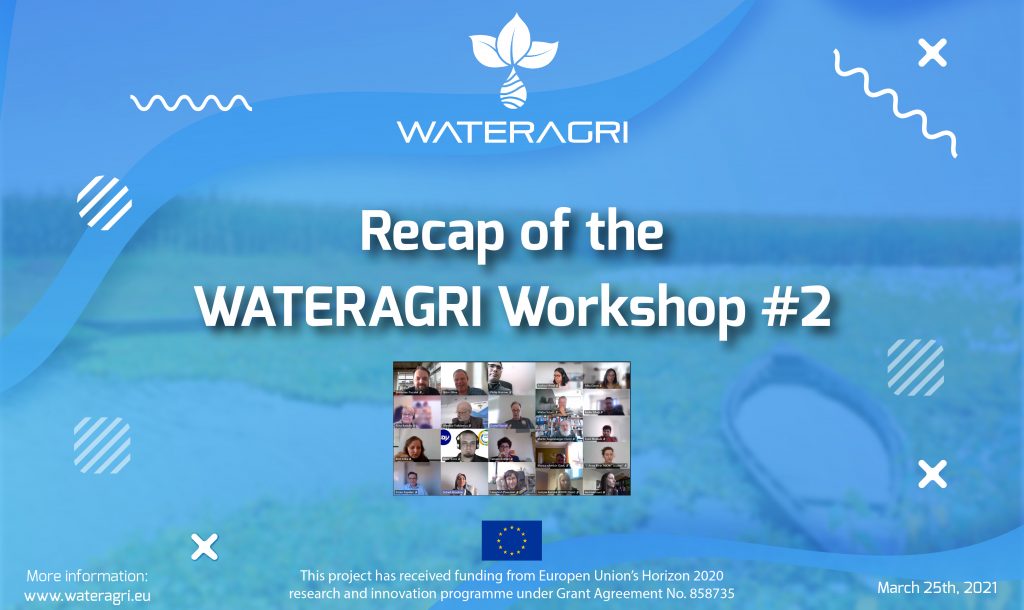Recap of the Second WATERAGRI Workshop

A portfolio of solutions related to soil water & nutrient management is being developed, tested and demonstrated on 10 case studies distributed across three climatic zones in Europe. During the workshop, the WATERAGRI framework was presented by Philip Brunner, as well as selected solutions such as:
- Irrigation Management (presented by Diego Guidotti from Agricolus)
- Remote Sensing Pipeline (presented by Haidi Abdullah from Vultus)
- Farm Constructed Wetlands (presented by Suhad Almuktar and developed by University of Lund and The University of Natural Resources and Applied Life Sciences, Vienna)
- Bio-inspired multi-layer drainage systems (presented by Anna Biebl from Alchemia-Nova)
- Water Retainer Product (developed by Bayzoltan and presented by Richard Vattay (Water&Soil Ltd.))
- Dewaterability Test Apparatus (presented by Miklas Scholz and developed by University of Salford and University of Lund)
More than 80 participants were engaged in the workshop by being able to pose questions or provide feedback to solution providers during the plenary discussion about the WATERAGRI framework, as well as by joining ‘discussion rooms’ in 8 different languages (Italian, Finnish, Swedish, German, Hungarian, Polish, French, and English) where they were able to discuss the following three topics:
- What are your key issues or needs (in terms of solutions)?;
- Out of the 6 solutions presented in the workshop, which ones do you find most appealing and why? If none, what solution do you have in mind?
- How do you see us working together to implement the solution of your interest?
As the result of the workshop, the stakeholders were able to learn in detail about the presented solutions with regards to what they offer, how they can be implemented, while the solution providers gained insights into participants’ needs and preferences. This feedback will further enable the WATERAGRI project to improve the framework and support the change in water and nutrient management toward more sustainable solutions.
To learn more about the WATERAGRI solutions visit our YouTube channel or our website, and follow us on LinkedIn, Facebook and Twitter.